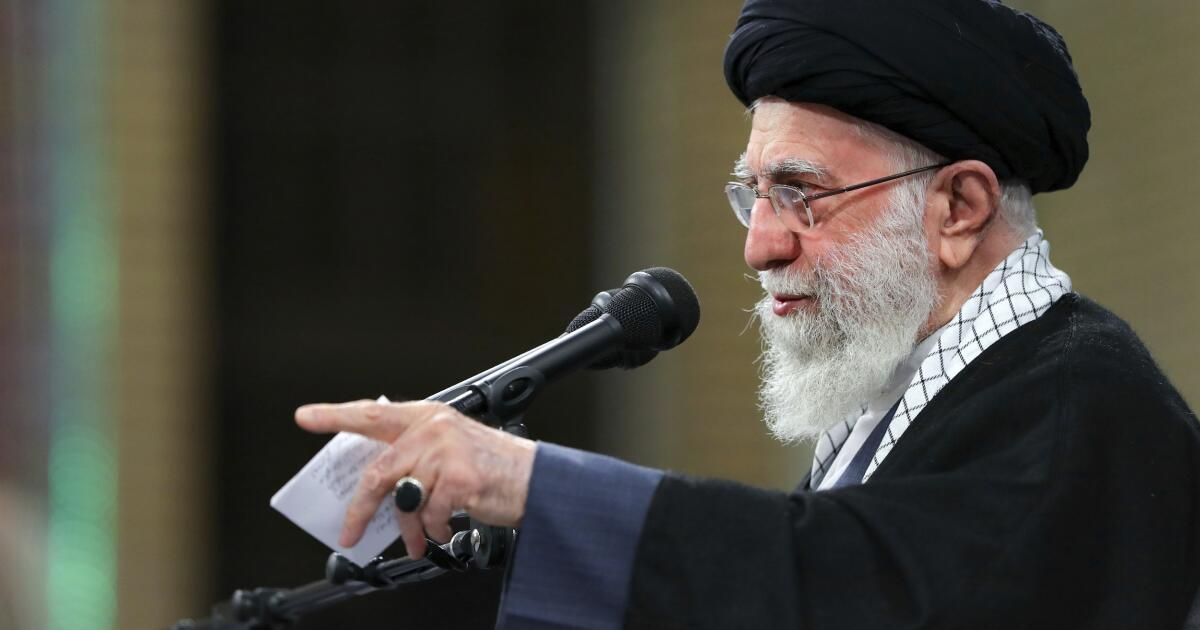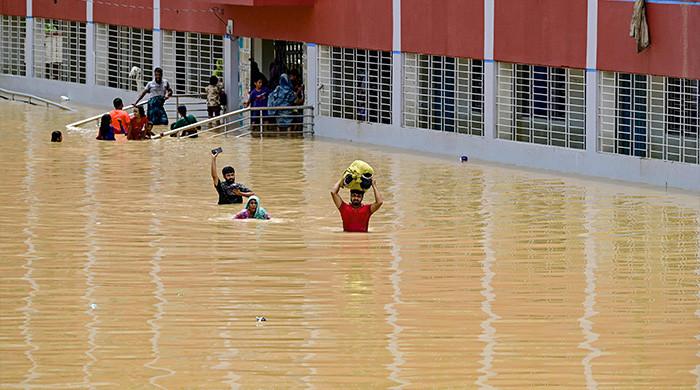Following last month's double assassination of Hamas leader Ismail Haniyeh in Tehran and a senior Hezbollah commander in Beirut, Iran and Hezbollah vowed retaliation against Israel, saying revenge was a “matter of honor.”
Many braced for a response from Iran, Hamas and Hezbollah that could spark an all-out regional war.
But that has not happened.
Nearly a month after the killings, the “harsh punishment” promised by Iran’s Supreme Leader Ayatollah Ali Khamenei, along with the “strong and effective” retaliation that Hezbollah chief Hassan Nasrallah vowed to apply against Israel, have yet to materialize.
And this week, Iranian officials hinted that no response was imminent.
“We have time at our disposal and the waiting period for a response may be long,” Brigadier General Ali Mohammad Naeini, spokesman for Iran’s Islamic Revolutionary Guard Corps, told a news conference on Tuesday. He insisted that there was nonetheless “a serious determination to respond to the various aggressions of the Zionist regime,” referring to Israel, and that this may not be a “repeat of previous operations.”
He appeared to be referring to Iran's missile attack on Israel in April, which came after Israel killed a senior Iranian commander at the country's embassy in the Syrian capital Damascus.
Many airlines have cancelled flights to Israel for fear of being caught in the crossfire. Foreign embassies have issued travel and security warnings in Israel, which has hit Tel Aviv's summer tourist season hard.
The number of travelers to Israel has dropped by 75% in the first six months of the year, according to the country's Central Bureau of Statistics.
Last week, Fitch downgraded Israel's credit rating from A+ to A in light of the ongoing conflict in Gaza that “could last well into 2025” and “risks of it spreading to other fronts,” according to a note from the US credit rating agency.
Iran and Lebanon have suffered similar flight suspensions. In the case of Lebanon, where Israel and Hezbollah have exchanged fire since Oct. 8, the loss in tourism revenue is estimated at more than $7 billion, according to authorities, compounding the malaise of an economy already suffering from a devastating five-year currency crisis.
In the three weeks since the killings, the United States has deployed additional forces to the Middle East, sending two aircraft carrier groups (the second, led by the USS Abraham Lincoln, arrived on Wednesday) and a submarine, to serve as a deterrent and a means of defense in the event of an attack on Israel.
There is growing concern that the conflict could involve Iran more directly, said Matthew Levitt, a regional expert at the Washington Institute think tank.
“Iran ultimately has one bright red line when it comes to the prospect of a regional war, and that is that it does not spill over into Iran’s borders,” Levitt said.
But Iran is aware that it would pay a price for attacking Israel, said Ali Vaiz, an Iran analyst at the International Crisis Group think tank.
“The simple reality is that Israel and the United States have the power to escalate,” Vaiz said. “If Iran wants to retaliate in any way other than symbolic, it will face a much more devastating blow.”
Vaiz said it might be wiser for Iranian leaders to avoid escalating tensions.
“The Iranian leadership has had some tactical setbacks, but strategically they are winning, in the sense that Israel has not been able to achieve its strategic objectives in Gaza and has become isolated internationally,” he said.
In addition to the military mobilizations, diplomats have been traveling from one regional capital to another in recent weeks in an effort to calm tensions. Last week, the United States led a last-ditch effort to forge a ceasefire in Gaza.
That effort appears to have helped delay at least one Iranian retaliation. In a statement Wednesday, Iran’s mission to the United Nations said the government “will carefully calibrate its response to prevent potential negative consequences that could affect a possible ceasefire.”












